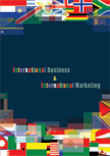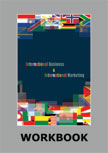Pfizer's Intellectual Property Rights Battles in China for Viagra




|
|
ICMR HOME | Case Studies Collection
Case Details:
Case Code : BENV010
Case Length : 22 Pages
Period : 2000-2007
Pub Date : 2007
Teaching Note :Not Available
Organization : Pfizer, Inc.
Industry : Pharmaceutical
Countries : China
To download Pfizer's Intellectual Property Rights Battles in China for Viagra case study
(Case Code: BENV010) click on the button below, and select the case from the list of available cases:

Price:
For delivery in electronic format: Rs. 300;
For delivery through courier (within India): Rs. 300 + Rs. 25 for Shipping & Handling Charges
»
Business Environment Case Studies
»
Business Environment Short Case Studies
» View Detailed Pricing Info
» How To Order This Case
» Business Case Studies
Please note:
This case study was compiled from published sources, and is intended to be used as a basis for class discussion. It is not intended to illustrate either effective or ineffective handling of a management situation. Nor is it a primary information source.
|
|
<< Previous
Pfizer Wins Viagra IPR Litigation - China In Transition? Contd...
|
In late 2001, Pfizer was granted a patent for Viagra in China. But Pfizer soon
became engaged in numerous patent litigations. An alliance of Chinese
pharmaceutical companies petitioned the State Intellectual Property Office's (SIPO)
Patent Re-examination Board (PRB) to invalidate the patent. They contended that
Viagra should not be provided a patent as it failed to fulfill the "novelty"requirement under China's patent law.
In July 4, 2004, PRB invalidated Pfizer's patent for Viagra citing that it had
failed to accurately explain the uses of the Viagra's key ingredient, Sildenafil
citrate (Sildenafil). Pfizer argued that at the time of filing of the patent
application, there was no requirement for that data, and to invalidate the
patent on that basis was a flawed, "retroactive"judgment.
|
|
The invalidation of the patent led to a
huge international outcry. Free trade supporters viewed this as an attack on IPRs of foreign companies and an indicator of China's reluctance to provide
adequate protection to IPRs.
|
|
Critics
lambasted China for failing to properly enforce IPR laws and called for
political pressure to make China conform to TRIPS.
Roger Pilon (Pilon),
vice president for legal affairs at the Cato Institute8, explained the
reason for the outcry: "On average, from the time a company first
applies for a patent, it takes 12 to 15 years and $800 million before
the first pill reaches the market. Obviously, if others were free to
copy and sell that pill, having incurred none of those costs, there
would be no incentive to make that kind of investment - and none of the
modern "miracle"drugs that investment produces. No one grows crops if
others are free to harvest them."9 |
However, some analysts felt that there were significant
positives relating to the litigation. It showed that Chinese companies had begun
to appreciate the importance of IPRs. The decision of these companies to take
legal recourse rather than infringing on the IPRs was appreciated. It indicated
that China was keen to project its transition to become fully compliant with the
WTO agreements...
Excerpts >>
|
|



